
THE VOICE OF INTERNATIONAL LITHUANIA
|
VilNews has its own Google archive! Type a word in the above search box to find any article.
You can also follow us on Facebook. We have two different pages. Click to open and join.
|
Archive for October, 2012
- Posted by - (0) Comment
PAIHIA – the Jewel of the
Bay of Islands, New Zealand
Paihia is the main tourist town in the Bay of Islands in the far north of the North Island of New Zealand. It is located close to the historic towns of Russell, and Kerikeri, 60 kilometres north of Whangarei. The origin of the name Paihia is obscure. One, possibly apocryphal, attribution is to Reverend Henry Williams. When Williams first arrived in the Bay of Islands he knew only a little of the Māori vocabulary, one of the words he did know being ‘pai’ meaning 'good'. When they came to the place now known as Paihia, he told his Māori guide ‘Pai here’. Henry Williams named the missionary station Marsden's Vale; eventually the name Paihia became the accepted name of the settlement. Nearby is the historic settlement of Waitangi to the north, and the residential and commercial areas of Haruru Falls/Watea to the west; the township of Opua and the small settlement of Te Haumi to the south. The population of Paihia was 1770 in the 2006 Census, a decrease of 69 from 2001
Also see:
www.kerikeri.co.nz www.bayofislands.co.nz www.visitfarnorthnz.com

- Bookmark :
- Digg
- del.icio.us
- Stumbleupon
- Redit it
- Posted by - (5) Comment
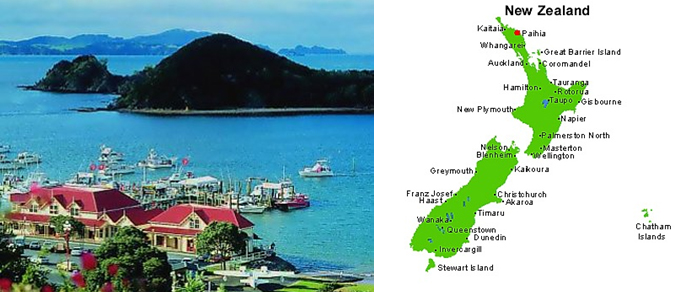
PAIHIA – the Jewel of the Bay of Islands, New Zealand
Paihia is the main tourist town in the Bay of Islands in the far north of the North Island of New Zealand. It is located close to the historic towns of Russell, and Kerikeri, 60 kilometres north of Whangarei. The origin of the name Paihia is obscure. One, possibly apocryphal, attribution is to Reverend Henry Williams. When Williams first arrived in the Bay of Islands he knew only a little of the Māori vocabulary, one of the words he did know being ‘pai’ meaning 'good'. When they came to the place now known as Paihia, he told his Māori guide ‘Pai here’. Henry Williams named the missionary station Marsden's Vale; eventually the name Paihia became the accepted name of the settlement. Nearby is the historic settlement of Waitangi to the north, and the residential and commercial areas of Haruru Falls/Watea to the west; the township of Opua and the small settlement of Te Haumi to the south. The population of Paihia was 1770 in the 2006 Census, a decrease of 69 from 2001
Also see:
www.kerikeri.co.nz www.bayofislands.co.nz www.visitfarnorthnz.com

- Bookmark :
- Digg
- del.icio.us
- Stumbleupon
- Redit it
- Posted by - (0) Comment
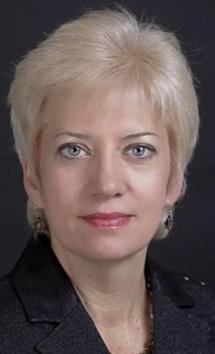
Gintė Damušis, newly appointed Ambassador at Large for relations with the Lithuanian World Community, interviewed in VilNews
IN OUR INTERVIEW WITH HER WE BROUGHT UP A PREVIOUS VILNEWS ARTICLE:
“No LT leaders called to tell they love me,” said Rimgaudas P. Vidziunas (65) from Arizona (see https://vilnews.com/?p=13633).
He is one among thousands of Lithuanians born in German camps for displaced people after World War II. Why do you think nobody called him or sent him a note of recognition and appreciation?
GINTĖ DAMUŠIS ANSWERED:
Mr. Vidziunas‘ life experience is one of so many thousands of interesting, unknown stories. It never fails to amaze me just how important and central Lithuania is to so many people like him. We need to build bridges to reach him and other motivated Lithuanians, to optimize those emotional, professional and other ties more effectively, because Lithuania and the diaspora are inextricably linked.
Read the interview…
- Bookmark :
- Digg
- del.icio.us
- Stumbleupon
- Redit it
- Posted by - (0) Comment

Instead of becoming a regional energy power-house, Lithuanians voted for big-spending politicians, rejecting plans for a new nuclear power plant
Dealing a blow to the conservative government's vision of becoming a regional energy powerhouse, Lithuanians voted instead for big-spending politicians and rejected plans for a new nuclear power plant.
The populist Labor Party, led by a Russian-born millionaire, won Sunday's election in this Baltic nation with 20 percent of the vote, while the center-left Social Democrats came in second with 18.5 percent. The two have agreed to form a new government to replace the center-right coalition, which managed just over 23 percent of the vote.
The exact composition of the next 141-seat Parliament is still not clear pending some run-off votes on Oct. 28, but Labor and the Socialists are expected to gain a majority.
Still, analysts said Monday that the two parties, which campaigned on exorbitant promises, were unlikely to make any radical policy departures, although they would likely slow down harsh fiscal measures needed to introduce the euro in 2014, one of the conservative coalition's goals.
"Promises that the new government will stop saving and start spending big-time are unrealistic," said Nerijus Maciulis, analyst at Swedbank. "Otherwise Lithuania will soon find itself in a situation similar to Greece."
Analysts at Danske Bank agreed, writing in a Monday note that "leftist parties campaigned on a relatively populist and pro-interventionist plank ...however we expect the new coalition government to tone down the rhetoric."
In 2009, Lithuania suffered a shocking double-whammy, as its economy entered a severe recession, plunging nearly 15 percent, and a Soviet-era atomic power plant was shut down, forcing the country to switch to Russian gas.
The nation of 3 million people now imports over 60 percent of its electricity needs – more than any other European Union member. Russia currently supplies 100 percent of Lithuania's natural gas at a hefty price.
Read more…
- Bookmark :
- Digg
- del.icio.us
- Stumbleupon
- Redit it
- Posted by - (0) Comment
Marija Danguolė Navickienė, new President
of the Lithuanian World Community
We shall become a force, one to be desired and respected as an ally on behalf of Lithuania
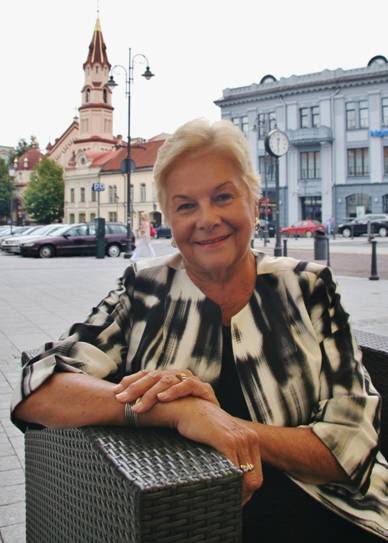
Marija Danguolė Navickienė is the new President of
Lithuanian World Community (LWC).
Photo: Aage Myhre
Marija Danguolė Navickienė, new President of the Lithuanian World Community (LWC) interviewed by Aage Myhre, VilNews Editor-in-Chief
A new Board of Lithuanian World Community (LWC) was elected during the 14th World Lithuanian symposium held in August 2012 in Vilnius. Marija Danguolė Navickienė was elected new President for the organisation, replacing Regina Narušienė who chaired the LWC Board for six years. Here is our interview with the fresh LWC President.
Congratulations as newly elected President of the Lithuanian World Community (LWC)! For the next years you will lead the huge Lithuanian nation-outside-the-nation representing almost as many people as the country itself. What are your visions for this important job?
My vision is one of attaining mutual understanding, respect and cooperation between the people of Lithuania and its diaspora, as well as among the many different countries of the world where there are Lithuanian communities.
- Bookmark :
- Digg
- del.icio.us
- Stumbleupon
- Redit it
- Posted by - (10) Comment
Marija Danguolė Navickienė, new President of the Lithuanian World Community
We shall become a force, one to be desired and respected as an ally on behalf of Lithuania
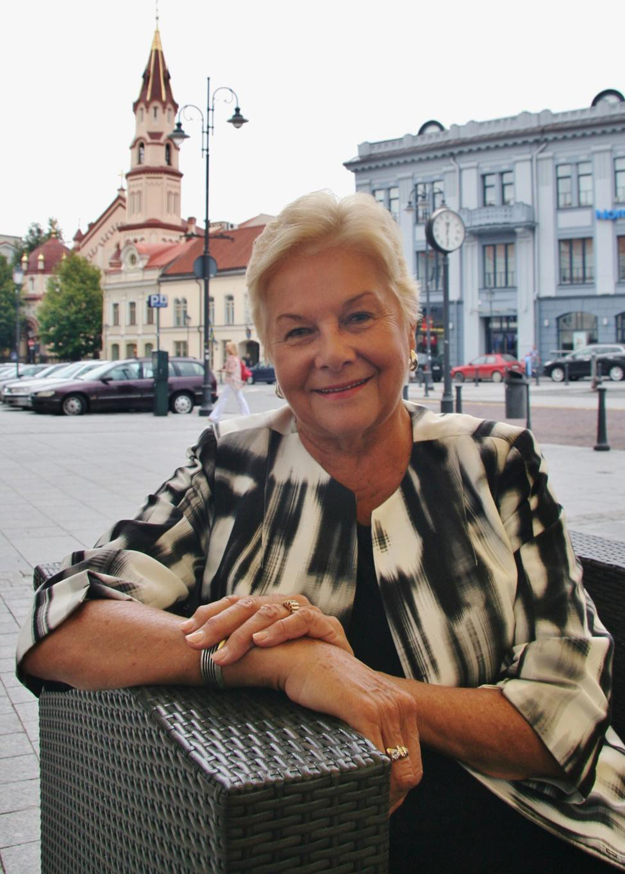
Marija Danguolė Navickienė is the new President of
Lithuanian World Community (LWC).
Photo: Aage Myhre
Marija Danguolė Navickienė, new President of the Lithuanian World Community (LWC)
interviewed by Aage Myhre, VilNews Editor-in-Chief
A new Board of Lithuanian World Community (LWC) was elected during the 14th World Lithuanian symposium held in August 2012 in Vilnius. Marija Danguolė Navickienė was elected new President for the organisation, replacing Regina Narušienė who chaired the LWC Board for six years. Here is our interview with the fresh LWC President.
Congratulations as newly elected President of the Lithuanian World Community (LWC)! For the next years you will lead the huge Lithuanian nation-outside-the-nation representing almost as many people as the country itself. What are your visions for this important job?
My vision is one of attaining mutual understanding, respect and cooperation between the people of Lithuania and its diaspora, as well as among the many different countries of the world where there are Lithuanian communities.
“We have to turn the idea of Global Lithuania into reality and take the relations between Lithuania and Lithuanian diasporas to a new quality level”, said the Vice-Minister of Foreign Affairs, Asta Skaisgirytė Liauškienė, in a recent meeting with you. What should, in your opinion, characterize such a new quality level? http://www.urm.lt/umr/m/m_images/wfiles/ioqw1o26229.jpg
I have had the pleasure of recently receiving a follow-up letter from Vice-Minister Asta Skaisgiryte Liauškienė detailing the many ways in which the Lithuanian World Community could work with the Lithuanian government as well as non-government institutions in Lithuania to fulfil the concept of a Global Lithuania. Among the suggestions were joint projects in academic, business, cultural and other fields. They are impressive and concrete in themselves, but the word which jumped out of the page at me was “partnership”. The LWC has long been on a quest for equal standing in conceiving and executing joint projects with Lithuania. This, above all, indicated that a new quality level has been reached. We look forward to working together with this newly redefined concept of partners united for a common cause.
It was in the meeting agreed to continue strengthening the cooperation between the Ministry of Foreign Affairs and LWC, cooperating for a common goal. Seen from outside there hasn’t seemed to be too close a cooperation between Lithuanian authorities and the global Lithuanians, are we now seeing an increased interest and understanding from the national leadership?
I sincerely believe that we have entered a new era of increased interest and understanding, not just judging by the contents of the letter from Vice-Minister Asta Skaisgirytė Liauškienė, but several other manifestations which I have experienced. The Lithuanian American Community Board of Directors meeting which occurred at the end of September in Atlanta was attended by so many members of the Ministry of Foreign Affairs, including the Minister of Foreign Affairs Audronius Ažubalis, that it almost looked like a Foreign Affairs Ministry convention. Besides the Foreign Minister, we had the Lithuanian Ambassador to the U.S. Žygimantas Pavilionis, Consul General to New York Valdemaras Sarapinas, the director of the Department of Lithuanians Living Abroad Arvydas Daunoravičius and several members of the Lithuanian Embassy staff present. Their attendance and expressions of mutual cooperation were very well received.
“No LT leaders called to tell they love me,” said Rimgaudas P. Vidziunas (65) from Arizona (see https://vilnews.com/?p=1363 ). He is one among thousands of Lithuanians born in German camps for displaced people after World War II. Why do you think nobody called him or sent him a note of recognition and appreciation?
It is difficult to answer this question not knowing if the quote is taken out of context, or is tongue-in-cheek, but if it is seriously expressed, then I would say that Rimgaudas’ expectations are somewhat unrealistic. Being born a Lithuanian is an accident of birth. It’s what you do with it later that really matters. If Rimgaudas and other Lithuanians living abroad participated in 50 years of efforts to liberate Lithuania through lobbying and dissemination of information about her plight to influential people of the world and anyone else who would listen, then they, as a group such as the Lithuanian World Community, Lithuanian American Community and all Lithuanian Communities of the world, are deserving of an expression of love and appreciation from Lithuanian leaders. There have, in fact, been many expressions of appreciation from Lithuanian leaders. They are expressed during cultural events, independence commemorations and throughout the media. Those who actively participate in such activities and read the Lithuanian press are well aware of it.
You are today working as an IT specialist in California, but have throughout your lifetime maintained interest and warm feelings for the homeland you had to fly from as a child at the end of WWII. You are also President of the "Lithuanian Children Hope" Los Angeles department, which over a 20 years period has donated more than 1.5 million US dollars to the Vilnius University Children's Hospital. Is there still today a need for charity and other forms of help efforts for Lithuania?
In reality, I have been retired from my profession for several years. It just doesn’t feel as if I’m retired because I’m working harder than ever. My current volunteer work, whether cultural or charitable or community projects, has given me more joy and fulfilment than any of the jobs for which I got paid. Lithuanian Children’s Hope, a subsidiary of the Lithuanian American Community Social Services Council, is the perfect example of how we can not only help heal Lithuania’s children, but also build bridges between our countries and Lithuania. Charity never goes out of style, be it in a prosperous country like the United States or one recovering from many years of Soviet occupation like Lithuania. It is the gift that keeps on giving – to donor and recipient alike.
There was a time when we used to bring children from Lithuania to Los Angeles for treatment before we had enough money to start rebuilding facilities and buying expensive equipment for the Vilnius University Children’s Hospital. During that time we had the opportunity to live closely with both children and parents while the children were being treated. Upon leaving for home, one of the mothers gave a beautiful speech to the volunteers who cared for her and her child in which she said: “You have done more than heal our children. You have taught us to love.” It is something I shall always carry in my heart. In short, the answer to your question is a resounding “YES!”.
If I’ve understood you correctly it was not California but New Jersey that became your first home in the U.S., and here you had a remarkable career working with secret test programmes for military airplanes?
My first home in the U.S. was New Jersey, but it was in California where I worked on my secret military plane programs.
“Ask not what your country can do for you—ask what you can do for your country.” This said U.S. President John F. Kennedy in his inaugural address in January 1961. What would YOU tell the many Lithuanians scattered around the world today?
I would tell them that it is not enough to eat kugelis and drink Lithuanian beer a few times a year. One would primarily need to be well-informed of events in Lithuania in order to understand her needs and to see where one can help. Some ways to help require years of commitment, while others may involve just writing a Letter to the Editor of newspapers which print libelous articles about Lithuania. The more letters they receive, the more likely they are to take notice and to print the rebuttals. Similarly, lobbying your governments to continue to support NATO involvement in the defense of Lithuania can have a positive effect. There are many such examples.
It is very important to foster Lithuanian culture and education in your communities in order to keep close ties with Lithuania and feel a commitment to be useful to her in the future. You can be a good Lithuanian without jeopardizing your ties or loyalty to your adopted country.
For you be a good leader for international Lithuania, the 'troops' of global Lithuanians must rally behind you. How can that best be done and what would be your invitation to groups and individuals who wish to contribute to your important work that is now in its very beginning?
Even though we are all of Lithuanian ancestry and share the same history and cultural heritage, we are in many ways quite different. This is true not only between the diaspora and the country of Lithuania, but also among the many communities of Lithuanians living abroad. I believe that finding that which unites us is very obvious and merely scratches the surface. I feel a need to explore that which divides us and work to overcome our differences in order to be effective. For example, we could institute some people-to-people programs or cultural exchanges between the different countries of the diaspora to promote understanding and unity.
"Workers of the world, unite!" said Karl Marx and Friedrich Engels in their Communist Manifesto (1848). What about “Lithuanians of the world, unite!” as motto for you and LWC for the years to come?
This motto expresses well what the LWC needs to do in order to achieve its goals. We are all of Lithuanian ancestry, we speak Lithuanian and promote Lithuanian culture and education in the many different countries in which we live. If we would be concerned only with our corner of the world, our successes would be small. If we unite and work together to achieve common goals, we shall become a force – one to be respected and desired as an ally on behalf of Lithuania.
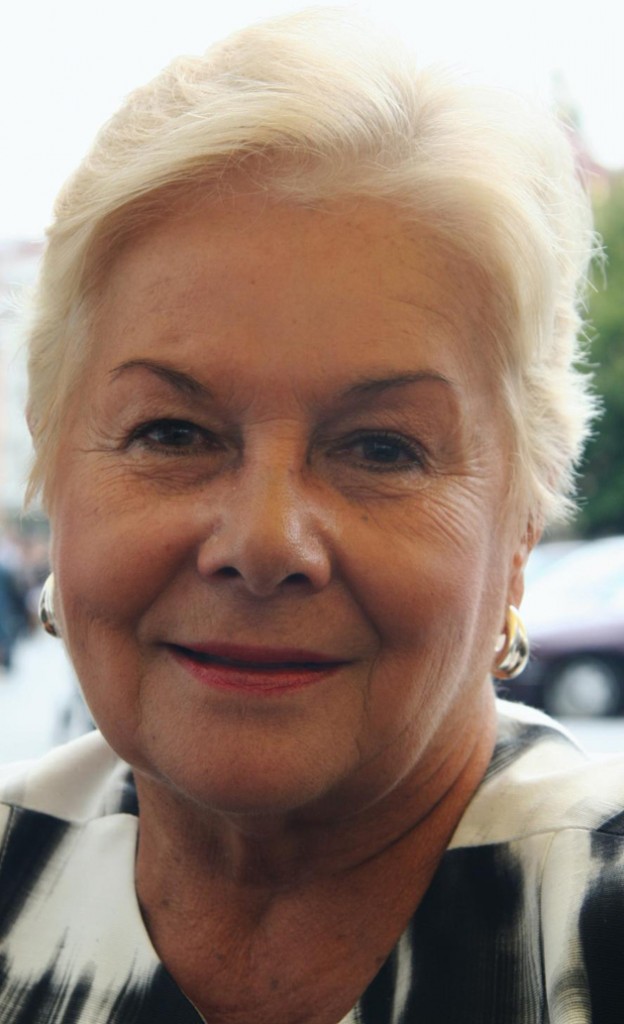
3020 Marija D. Navickas
Adirondack Court
Westlake Village, CA 91362
805-497-0105
navickiene@verizon.net
CURRENT EXPERIENCE – Volunteer Work
Lithuanian World Community – 08/2012 – present
President of the Lithuanian World Community – 08/2012 – present
· Conduct all Public Affairs for the LWC
· Represent LWC interests to Lithuanian government and non-government institutions
· Assist multi-country constituencies in maintaining solidarity and functionality in their regional concerns as well as productive connections to their own governments
Lithuanian American Community – 09/2006 – present
Executive Vice President of the Lithuanian American Community National Executive Committee - 09/2010 - present
· Organize meetings and seminars with Lithuanian government and cultural dignitaries
· Organize major cultural events for thousands of participants
· Provide mentoring for LAC chapters throughout the country
· Give bilingual interviews to Lithuanian media when visiting Lithuania
Western Region Chair – 10/2011 - present
· Coordinate activities for LAC chapters west of the Mississippi
· Serve as a liaison between local chapters and the National Executive Committee
Chairman of the LAC National Board of Directors – 09/2006 – 09/2009
· Oversaw the execution of all the required activities of the Board of Directors and of the National Executive Committee
· Served as spokesperson for the Lithuanian American Community for all its causes and missions in both the Lithuanian and the American press
· Organized yearly board meetings and elections
Lithuanian children’s hope committee
Committee Founder and Chair – 08/1992 - present
· Have so far raised close to two million dollars for the improvement of children’s health in Lithuania in the post-Soviet era
· Conduct fundraising through public fundraisers and private solicitations
· Found pro bono specialized health services in the United States for 26 Lithuanian children
· Built the first pediatric burn center in Lithuania at the Vilnius University Children’s Hospital (VUCH)
· Provide modern equipment for the VUCH Trauma, Oncology and Premature Infant Departments
· Provide opportunities for VCUH medical staff to further their education by funding trips to seminars, professional meetings and work/study engagements abroad
Professional EXPERIENCE
zenith insurance, Los Angeles – 1991 - 2001
Knowledge Engineer/Software Engineer
· Developed risk analysis programs using artificial intelligence
· Provided technical support to the Underwriting and Accounts Receivable departments
Lockheed corporation, Burbank – 1986 - 1991
Software Engineer
· Project lead on a secret military aircraft project
· Military aircraft design using artificial intelligence
Grumman aerospace, Pt. Mugu Naval Base – 1974 - 1986
Software Engineer/Programmer
· Project lead on aircraft systems integration and test
· Test flight analysis
Education
Marymount Manhattan College, New York - B. A. in Mathematics
Continuous on-the-job education in Management and Software skills
Skills
· Bilingual in English and Lithuanian
· Accomplished public speaker in both languages
· Computer expert
- Bookmark :
- Digg
- del.icio.us
- Stumbleupon
- Redit it
- Posted by - (0) Comment
Lithuania’s Foreign Ministry
is committed to its “Global
Lithuania” Programme
Foreign Minister Audronius Ažubalis is personally committed to the “Global Lithuania” program and to strengthening ties with the diaspora. During a recent working visit to the United States, he made a special trip to a national gathering of the Lithuanian-American Community in Atlanta. There he told assembled delegates that Lithuania and its diaspora are one undivided and indivisible family. He also discussed practical ways and means for strengthening mutually beneficial cooperation and partnership.
When the Foreign Minister appointed Gintė Damušis to the new position of Ambassador at Large for relations with the Lithuanian World Community, he reiterated that State-diaspora relations are among the MFA’s policy priorities. Moreover, he expressed his appreciation for the work of Lithuanians abroad, who have actively contributed to the well-being, prosperity and viability of Lithuania. He also recognized the importance of past support and expressed the hope that efforts could be multiplied in the future through complementary and joint cooperation.
Connecting Lithuania
and the diaspora
Gintė Damušis, newly appointed Ambassador at Large for relations with the Lithuanian World Community interviewed by Aage Myhre, VilNews Editor-in-Chief
After recently completing her posting in Ottawa as Ambassador of Lithuania to Canada, Gintė Damušis returned to the Ministry of Foreign Affairs as Ambassador at Large in the Department of Lithuanians Living Abroad in charge of relations with the Lithuanian World Community. Her duties include strengthening ties with Lithuanian organizations abroad, engaging Lithuanian communities through joint projects in the implementation of the “Global Lithuania” strategy, also rallying diaspora support for strategic Lithuanian interests. This is our interview with Ambassador Damušis.
Congratulations on your new position and duties. What is your vision for this important job?
I discussed the goals of this new assignment with the Minister. The vision is to actively engage the diaspora by promoting joint projects and activities for maintaining Lithuanian identity through educational, cultural, economic and other programs. We want to expand connections by encouraging communities to think locally, but act globally by sharing expertise and building business and other professional networks for promoting trade, investment, scientific and other cooperation. We are encouraging direct engagement with Lithuanian civil society so that the Lithuanian people can benefit practically from more active ties with the diaspora. More people-to-people contacts will open doors and expand horizons. Promoting volunteerism and the sustainability of diaspora activities abroad are issues that will continue to receive attention, also help raise public awareness about the diaspora. These may sound like ambitious tasks, but many fine initiatives in the diaspora and Lithuania alike are already underway, an entire Foreign Ministry department is dedicated to facilitating this work and 13 Government agencies are mandated to support these and other programs under a “Global Lithuania” action plan. We need to build upon these initiatives, strengthen and expand these efforts, multiply their scope and impact, so that the untapped potential of the diaspora is better utilized.
- Bookmark :
- Digg
- del.icio.us
- Stumbleupon
- Redit it
- Posted by - (1) Comment
Lithuania’s Foreign Ministry is committed to
its “Global Lithuania” Programme
When the Foreign Minister appointed Gintė Damušis to the new position of Ambassador at Large for relations with the Lithuanian World Community, he reiterated that State-diaspora relations are among the MFA’s policy priorities. Moreover, he expressed his appreciation for the work of Lithuanians abroad, who have actively contributed to the well-being, prosperity and viability of Lithuania. He also recognized the importance of past support and expressed the hope that efforts could be multiplied in the future through complementary and joint cooperation.
The “Global Lithuania” program is a vehicle for strengthening ties with the diaspora, including one of Lithuania’s oldest and most reliable partners – the Lithuanian World Community. What motivated the Government to come up with this idea? There is no denying that in today’s globalized world every country faces similar challenges. Migration is one such challenge. It is a reality for any democratic society, which guarantees the freedom of movement for its citizens. “Global Lithuania” seeks to address this challenge in a coherent fashion and to transform it into an opportunity. New technologies enable us to communicate faster and to cooperate more efficiently than ever before. The diaspora can successfully maintain transnational ties with their country of origin and actively participate in the state-building process much more readily.
The political, financial and logistical support provided under the auspices of “Global Lithuania” is more targeted and results-oriented. It aims to turn brain drain into brain power in support of Lithuanian strategic interests while at the same time increasing diaspora involvement in the life of Lithuania.
The Minister has stated that in order to realize the full potential of “Global Lithuania”, all government institutions involved in implementation of the program must demonstrate their commitment by allocating adequate funding, also administrative support and other necessary resources for making the “Global Lithuania” vision a reality.
Connecting Lithuania
and the diaspora
Gintė Damušis, newly appointed Ambassador at Large for relations with the Lithuanian World Community interviewed by Aage Myhre, VilNews Editor-in-Chief
After recently completing her posting in Ottawa as Ambassador of Lithuania to Canada, Gintė Damušis returned to the Ministry of Foreign Affairs as Ambassador at Large in the Department of Lithuanians Living Abroad in charge of relations with the Lithuanian World Community. Her duties include strengthening ties with Lithuanian organizations abroad, engaging Lithuanian communities through joint projects in the implementation of the “Global Lithuania” strategy, also rallying diaspora support for strategic Lithuanian interests. This is our interview with Ambassador Damušis.
Congratulations on your new position and duties. What is your vision for this important job?
I discussed the goals of this new assignment with the Minister. The vision is to actively engage the diaspora by promoting joint projects and activities for maintaining Lithuanian identity through educational, cultural, economic and other programs. We want to expand connections by encouraging communities to think locally, but act globally by sharing expertise and building business and other professional networks for promoting trade, investment, scientific and other cooperation. We are encouraging direct engagement with Lithuanian civil society so that the Lithuanian people can benefit practically from more active ties with the diaspora. More people-to-people contacts will open doors and expand horizons. Promoting volunteerism and the sustainability of diaspora activities abroad are issues that will continue to receive attention, also help raise public awareness about the diaspora. These may sound like ambitious tasks, but many fine initiatives in the diaspora and Lithuania alike are already underway, an entire Foreign Ministry department is dedicated to facilitating this work and 13 Government agencies are mandated to support these and other programs under a “Global Lithuania” action plan. We need to build upon these initiatives, strengthen and expand these efforts, multiply their scope and impact, so that the untapped potential of the diaspora is better utilized.
“We have to turn the idea of Global Lithuania into reality and take the relations between Lithuania and Lithuanian diasporas to a new quality level”, the Vice-Minister of Foreign Affairs, Asta Skaisgirytė Liauškienė, said in a recent meeting with Danguole Navickiene, the newly elected President of the Lithuanian World Community. What should, in your opinion, characterize such a new quality level?
A new quality level can be reached through more mutual respect, recognition and understanding of what each partner has to offer. This includes open dialogue about the added value of specific activities, also more broad-based recognition that the diaspora is Lithuania‘s natural ally and support system. Each partner needs to have realistic expectations about the other, also better awareness of mutual needs and requirements.
My own experience in Canada was very positive. The Embassy worked hand-in-hand with the Lithuanian Canadian community. We turned to the community for useful information and contacts, the community lobbied Lithuanian interests with local and federal representatives. Our main partner at Embassy business, cultural, press and other public events was the Lithuanian community.
We also need to recognize that the diaspora itself has changed over the past 20 years. It consists of people of different ages, life stories and experiences, with vastly varying needs. There are diverse interests, priorities and traditions between and within the different waves of emigration. The Government’s role is to shape a long-term strategy, which strengthens Lithuania’s connection to a multifaceted diaspora and interconnects the experience of old and new waves of emigration.
“Global Lithuania” is based on the approach that regardless of where we live, we can contribute to the progress of Lithuanian society and build a modern State by interconnecting knowledge, ideas and experience. Every motivated Lithuanian is important and can play a positive role both individually or within a broader framework like the Lithuanian World Community.
I personally believe that outstanding issues, such as dual citizenship, should not be a hindrance to pursuing practical cooperation and the strengthening of Lithuania-Diaspora ties. This would be counterproductive.
At this meeting between the Ministry of Foreign Affairs and LWC, both parties agreed to continue strengthening cooperation in pursuit of common goals. Seen from the outside, it seems as if there has been a lack of close cooperation between Lithuanian authorities and global Lithuanians. Are we now seeing an increased interest and understanding from the national leadership?
I dispute the perception that there is a lack of cooperation. Solid cooperation exists, as many Lithuanians abroad will attest, but communication could be better. Upon arrival at the MFA, I was surprised to see just how active interaction is with Lithuanian communities abroad. This cooperation is underpinned by a clear government commitment to maintain the program and strengthen relations despite the consequences of the global financial crisis. It is no secret that Lithuanian institutions are competing for limited resources. Also not all diaspora programs go through the MFA. As coordinator of „Global Lithuania“, the MFA plays a coordinating role, but it is by no means the only government agency implementing the program. For example, informal Lithuanian education – a leading LWC priority – is being transferred, as of 2013, from the MFA to the Ministry of Science and Education. Lithuanian embassies worldwide are actively supporting the establishment of Lithuanian schools abroad and will continue to do so.
Other initiatives that the MFA supports include the projects of Enterprise Lithuania and Global Lithuanian Leaders (GLL), which are building up networks of connected professionals around the world with the assistance of Lithuanians living abroad. GLL has also established a mentoring program for students and young professionals known as LT Big Brother. „Made in Vilnius“ is targetting social media and Lithuanians living abroad in an outreach campaign promoting tourism to Lithuania called „Invite a Friend to Lithuania“. Lithuanian International Student Services (LISS) has been organizing short-term internships in Lithuania for North American students and is looking to develop this popular program even further.
The World Lithuanian Economic Forum (WLEF) can serve as another good example of a successful Lithuania-diaspora partnership, which unites business professionals through a vibrant networking platform. It allows them to share experience and establish new business relationships, while contributing to the development of Lithuania. The WLEF network gives us access to the talent, expertise, contacts and other creative resources of highly qualified professionals, who have taken an active interest in our country. We are very grateful for their confidence in us and thankful to those, who have used their personal and professional connnections to draw major investments to Lithuania.
We are trying to interconnect all these fine initiatives with other interested partners such as the Lithuanian World Community, Lithuanian World Youth Association, Lithuanian communities in Europe, North and South America, and elsewhere, also individuals, who have an interest in Lithuania and want to get involved in one way or another. I should note that support is traditionally allocated not to the organization itself, but towards the implementation of good ideas and projects.
There is no scarcity of projects, initiatives or goodwill. We just need to do a better job at spreading information about the possibilities. The question of funding also needs to be addressed – and not just from the government side, but from the private and nongovernmental sectors as well. More innovative approaches are needed in funding arrangements to ensure the sustainability of diaspora institutions and activities, particularly among the younger generation of community leaders.
The World Lithuanian Youth Association has demonstrated savviness in this regard by approaching Lithuanian companies to fund the expenses of a recent youth conference in Lithuania, which was attended by 3000 participants from 30 countries, mostly Lithuanian students living or working abroad. The companies realized the added value of their involvement. No doubt they recognized the benefit of investing in an event, which attracted so many young people, many of whom may turn out to be potential job recruits in the future.
The Government is also interested in these young Lithuanians, is encouraging their return to Lithuania where they can apply their new experience and knowledge, or is motivating them to maintain the centrality of Lithuania in their roles as future community leaders.
“No LT leaders called to tell they love me,” said Rimgaudas P. Vidziunas (65) from Arizona (see https://vilnews.com/?p=13633). He is one among thousands of Lithuanians born in German camps for displaced people after World War II. Why do you think nobody called him or sent him a note of recognition and appreciation?
Mr. Vidziunas‘ life experience is one of so many thousands of interesting, unknown stories. It never fails to amaze me just how important and central Lithuania is to so many people like him. We need to build bridges to reach him and other motivated Lithuanians, to optimize those emotional, professional and other ties more effectively, because Lithuania and the diaspora are inextricably linked.
The Harvard Business Review Blog Network just carried an interesing article about the meaning of home in a globalized world (“Moving Around Without Losing Your Roots”, http://blogs.hbr.org/cs/2012/10/moving_around_without_losing_your_roots.html). In the article, blogger Gianpiero Petriglieri concludes that „without a local home we lose our roots, without a global home we lose our reach“. „Global Lithuania“ seeks to keep Lithuanians connected to their home country, or ancestral homeland. Hopefully, it will better position us to tap into those connections and to strengthen the Lithuania-Diaspora relationship.
What do you see as the main challenges ahead?
One of the biggest challenges is the perception that the Government is indifferent about the diaspora. Much is being done to address diaspora needs and concerns, and to include Lithuanians abroad in the life of Lithuania. The Government is approaching the diaspora in a more coherent way, thanks to “Global Lithuania”, and systematizing support and developing cooperation through many different programs, initiatives and networks.
Despite the enthusiasm from diaspora communities, strengthening Lithuania-Diaspora relations is admittedly a much more challenging task than it was 20 years ago. The main reason, as some community leaders allege, is the lack of a common denominator. Even so, the Government remains committed to identifying common goals and interests with the diaspora, also working in partnership to advance the interests and development of a modern Lithuania. The goal is to raise „Global Lithuania“ to a new level, so it becomes a living breathing plan and does not just turn into a paper tiger.
For generations there were certain code words that were part of the Lithuania-Diaspora relationship. These included freedom, human rights, Soviet occupation and the right to self-determination. Memories from the first years of Lithuanian independence kept the hope alive, and the euphoria of democratic change and reform, particularly during the days of Sajudis, was a major motivator for dramatic change.
A well-defined common issue at one point was EU and NATO membership for Lithuania, which rallied the diaspora around this important foreign policy goal.
Today Lithuania is so diverse across many lines – ideological, political, social, economic, etc. The benefit of such diversity is that every Lithuanian in the diaspora who is interested in Lithuania can find his or her counterpart. The disadvantage is that there is no single unifying cause as in the past for both Lithuania and the diaspora. Even so, opportunities to cooperate abound through specific areas of interest – along professional lines, in university student associations, through diaspora organizations, growing business and science networks, cultural, educational and charitable activities.
Lithuanian interests and democratic values can be advanced through a stronger Lithuania-Diaspora relationship, which works toward a more secure and prosperous Lithuania. As a global umbrella organization, the Lithuanian World Community can play an important and unique role in this regard, particularly by maintaining Lithuanian identity abroad and promoting the centrality of Lithuania in its global activities. Personal and emotional connections to Lithuania should not be underestimated and need to be nurtured.
We also have to recognize that the average Lithuanian knows very little about the realities of diaspora life. Many do not realize that community efforts are primarily based on volunteerism, or that Lithuanian families abroad actively maintain their identity through generations, that there are many charitable groups that support Lithuania-related causes, or that diaspora institutions promoting Lithuanian identity and culture abroad, such as community centers, youth camps, archives-museums, etc., are privately funded through individual donations and fundraising campaigns.
Hopefully, more Lithuanians will learn that life in the diaspora is not just about cepelinai dinners and other social events. It’s important to have some idea of what’s going on in diaspora life and Lithuania-Diaspora relations. The best way for people to feel that they are one united and undivided family is by doing things together and interconnecting interests. This is what we are aiming to facilitate.
- Bookmark :
- Digg
- del.icio.us
- Stumbleupon
- Redit it
- Posted by - (0) Comment
First time in the Lithuanian American Community:
3rd waver (trečia bangė)
becomes President
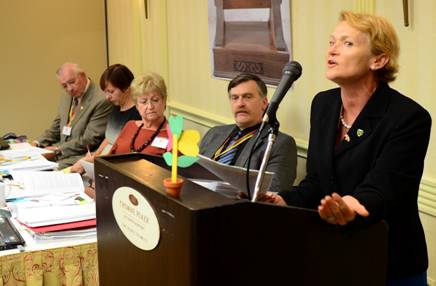
The new LAC President Sigita Šimkuvienė-Rosen addresses
the LAC meeting in Atlanta, Georgia
In a meeting held in Atlanta Georgia on the 28 and 29th of September, the Lithuanian American Community made history by appointing its first ever 3rd Waver (Trečia Bangė) as President. The XX session of LAC elected Sigita Šimkuvienė-Rosen a recent immigrant to the highest office. Sigita came to the USA just eleven years ago and has been very active in LAC circles. The 3rd wave refers to the Lithuanian Émigrés who left Lithuania after independence - up to now most Lithuanian exile organizations have been run by the 2nd Wave which refers to those who left during WWII. Sigita broke the mold.
- Bookmark :
- Digg
- del.icio.us
- Stumbleupon
- Redit it
- Posted by - (6) Comment
First time in the Lithuanian American Community:
3rd waver (trečia bangė)
becomes President

The new LAC President Sigita Šimkuvienė-Rosen addresses the LAC meeting in Atlanta, Georgia
In a meeting held in Atlanta Georgia on the 28 and 29th of September, the Lithuanian American Community made history by appointing its first ever 3rd Waver (Trečia Bangė) as President. The XX session of LAC elected Sigita Šimkuvienė-Rosen a recent immigrant to the highest office. Sigita came to the USA just eleven years ago and has been very active in LAC circles. The 3rd wave refers to the Lithuanian Émigrés who left Lithuania after independence - up to now most Lithuanian exile organizations have been run by the 2nd Wave which refers to those who left during WWII. Sigita broke the mold. Sigita lives in New Haven Connecticut. She takes charge of the largest Lithuanian diaspora organization in the world. The session was attended by Foreign Minister Audronis Ažubalis, Ambassador Žygimantas Pavilionis, Consul General Valdemaras Sarapinas, and other Government of Lithuania dignitaries. The Government of Lithuanian promised to work closer with LAC to address their concerns.

LAC Leadership Council
 Biru Bar from Indianapolis provided entertainment
Biru Bar from Indianapolis provided entertainment

Marija Danguolė Navickienė, new President of the Lithuanian World Community (LWC),
with Lithuania’s Ministor of Foreign Affairs, Audronius Ažubalis

Delegates at the Atlanta LAC Meeting

Lithuania’s Ambassador to USA, Žygimantas Pavilionis, reading Draugas*.
* Draugas is the oldest continuously published Lithuanian language newspaper anywhere in the world. Founded as a weekly Roman Catholic paper, Draugas published its first edition on July 25, 1909, in Wilkes-Barre, Pennsylvania. On March 31, 1916, it was relocated to Chicago, Illinois, and since then has been published daily, except Mondays and Sundays. During the Soviet occupation of Lithuania, the newspaper served as a voice of the Lithuanian independent media. Currently, Draugas is published by the Lithuanian Catholic Press Society in Chicago, Illinois. It contains twelve pages of political, religious, scientific, economic, sports, public interest articles, announcements, and paid advertising. The Saturday issue is twenty-four pages, including a weekly supplement Kultūra meaning Culture and subtitled Menas Literatūra Mokslas meaning Art Literature Science. See http://www.draugas.org/
- Bookmark :
- Digg
- del.icio.us
- Stumbleupon
- Redit it
- Posted by - (0) Comment
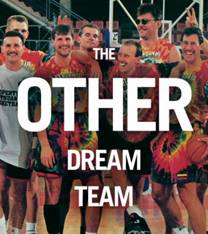
The film that unites Lithuanians around
the globe
There have been countless instances over time where sport becomes the salve that heals the open sores of society… Jews and Palestinians joining together for soccer, warring countries meeting in cricket, Japan and in finding common ground on a baseball diamond. However somehow basketball seems to have as big, if not the biggest impact on healing political differences and overcoming boundaries than any other sport.
The 1988 Olympics saw the USSR take the gold medal from the United States, with a team dominated not of Russians but of Lithuanians. Four years later, after great turmoil that spurred a break for democracy for the country, the players banded together and faced the "US Dream Team" for basketball supremacy in Barcelona.
That story, of the players the coaches, the Americans, even the Grateful Dead, is told in the new documentary now being shown across USA, "The Other Dream Team." The stars of that team, spurred on by the crisis in the country and led by future NBA stars like Arvydas Sabonis and Sarunis Marciulionis gave the American's best a scare, but most importantly, helped unite a country torn by war and sudden poverty.
Read more…
- Bookmark :
- Digg
- del.icio.us
- Stumbleupon
- Redit it
- Posted by - (0) Comment
Lithuanian candidates to the parliamentarian election pledge nuke rethink

Sat, 13 October 2012
By Vaidotas Beniusis — Lithuania’s centre-left opposition has promised a sweeping review of the country’s energy policy if it wins tomorrow’s election, held in tandem with a referendum on building a nuclear plant. On top in the opinion polls, the Social Democrats say they oppose the current Conservative government’s plans to construct a replacement for the Baltic state’s lone atomic facility, shut down in 2009.
Despite rising global anti-nuclear sentiments following the 2011 tsunami disaster at Japan’s Fukushima plant, Lithuania has pushed ahead with plans involving neighbours Latvia and Estonia.
Read more…
- Bookmark :
- Digg
- del.icio.us
- Stumbleupon
- Redit it
- Posted by - (0) Comment
'Anti-paedophile' party poised for parliamentary debut in Lithuania
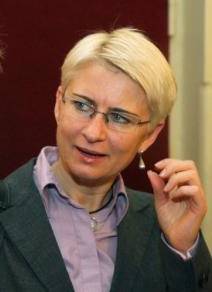
The leader of the Political Party 'The Way of Courage' Neringa Venckiene speaks during a campaign meeting in Vilnius, Lithuania. AFPpic
As Lithuania's mainstream politicians lock horns ahead of Sunday's general election, a swathe of smaller parties aim to make waves, few more so than a new anti-corruption movement spun from a scandal over an alleged cover-up of paedophilia.
While the main event in the Baltic state's vote looks likely to be the ruling centre-right's defeat by the left-wing opposition, the Way of Courage party seems set to make its parliamentary debut.
Polls it could muster 6.5 per cent of the vote, enough for a handful of seats in the European Union nation's 141-member parliament.
"Brazen corruption and injustice in this country drove me to found this party," said its creator, former judge Neringa Venckiene.
The party's name in Lithuanian, "Drasos Kelias", is a nod to her brother Drasius Kedys.
Kedys - whose first name means "the brave" - was found dead in 2010 after going missing following his alleged involvement in the 2009 fatal street shooting of another judge and Kedys' sister-in-law.
Kedys claimed that justice officials had covered up a paedophile ring abusing his daughter with the connivance of his estranged wife.
He was ruled to have died of natural causes. But Venckiene says she believes he was killed.
Read more…
- Bookmark :
- Digg
- del.icio.us
- Stumbleupon
- Redit it
- Posted by - (0) Comment
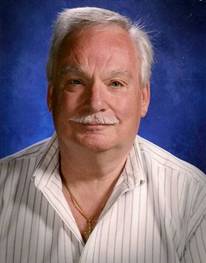
Pleased and proud to be part of the Lithuanian American Community (LAC)
Kestutis Eidukonis
Read more…
- Bookmark :
- Digg
- del.icio.us
- Stumbleupon
- Redit it
- Posted by - (0) Comment
![]()
Lithuania set to elect
Russia-friendly party
09 October 2012, Reuters
Austerity-weary Lithuanians are set to eject the country's ruling center-right coalition in an election this month, a move likely to ease ties with Russia and to delay the moment the small European Union member state joins the euro.
But the new government, which opinion polls show is likely to be a broad coalition led by the center-left Social Democrats, is expected largely to stick to austerity, as the Baltic state cannot afford to be frozen out of debt markets.
"The situation is unbearable — half of Lithuania has emigrated," said Svetlana Orlovskaya, 65, as she headed to work as a factory cleaner in a suburb of the capital city Vilnius.
She said Prime Minister Andrius Kubilius, head of a four-party coalition since 2008, had not done "anything good."
The Social Democrats are led by Algirdas Butkevicius, whose first choice of coalition is with the Labor Party, led by the Russian-born businessman, and with a party led by an impeached former president, Rolandas Paksas.
The Social Democrats back more constructive ties with Russia after Kubilius sought to lower gas prices and restructure the gas industry, against which the Kremlin loudly protested.
Lithuania and Russia have often had testy relations since the Baltic state regained independence in 1991.
- Bookmark :
- Digg
- del.icio.us
- Stumbleupon
- Redit it
Lithuania’s energy sector played an important role in the country’s economic development over the past decade as the country graduated to energy self-sufficiency. That ended with decommissioning of the Ignalina Nuclear Power Plant in December 2009, a condition for EU accession as that facility employed the same nuclear technology as the Chernobyl facility. That facility satisfied 70 percent of the country’s electricity demand. Lithuania is now reliant on energy-generating raw materials imported from Russia but is actively developing renewable energy sources (RES), from biomass to wind and geothermal, to gain energy independence again.
![]()
Biomass — What is it?

Biomass is biological material derived from living, or recently living organisms. In the context of biomass for energy this is often used to mean plant based material, but biomass can equally apply to both animal and vegetable derived material.
![]()
Geothermal energy — What is it?
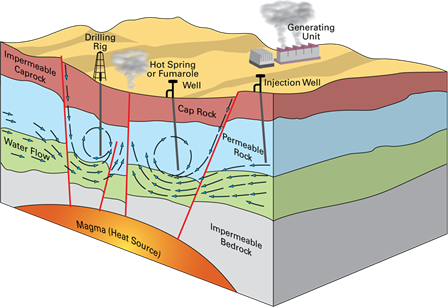
Geothermal energy is the energy stored in the form of heat beneath the earth's surface. Geothermal energy is a carbon free, renewable, sustainable form of energy that provides a continuous, uninterrupted supply of heat that can be used to heat homes and office buildings and to generate electricity.
![]()
Wind energy — What is it?

Wind power is the conversion of wind energy into a useful form of energy, such as using: wind turbines to make electricity, windmills for mechanical power, windpumps for water pumping or drainage, or sails to propel ships. A large wind farm may consist of several hundred individual wind turbines which are connected to the electric power transmission network. Wind power, as an alternative to fossil fuels, is plentiful, renewable, widely distributed, clean, produces no greenhouse gas emissions during operation and uses little land.
- Bookmark :
- Digg
- del.icio.us
- Stumbleupon
- Redit it
VilNews e-magazine is published in Vilnius, Lithuania. Editor-in-Chief: Mr. Aage Myhre. Inquires to the editors: editor@VilNews.com.
Code of Ethics: See Section 2 – about VilNews. VilNews is not responsible for content on external links/web pages.
HOW TO ADVERTISE IN VILNEWS.
All content is copyrighted © 2011. UAB ‘VilNews’.

 Click on the buttons to open and read each of VilNews' 18 sub-sections
Click on the buttons to open and read each of VilNews' 18 sub-sections 

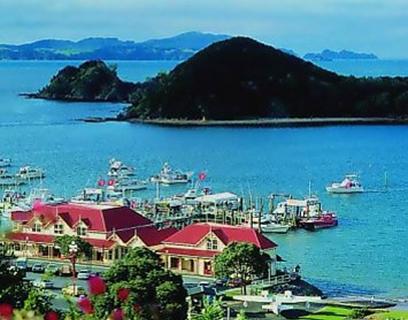





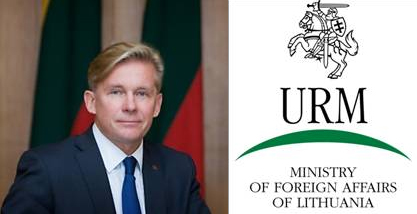
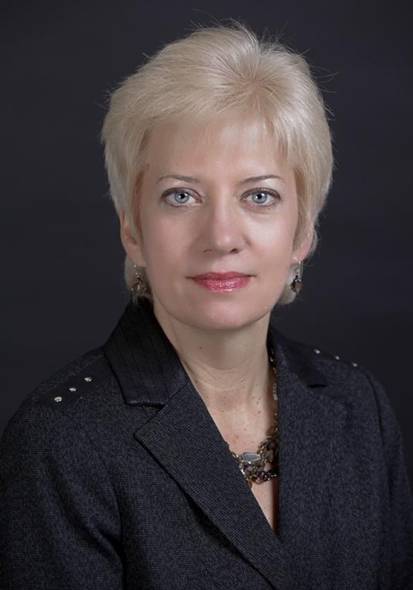
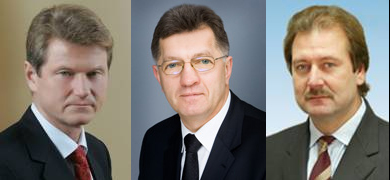
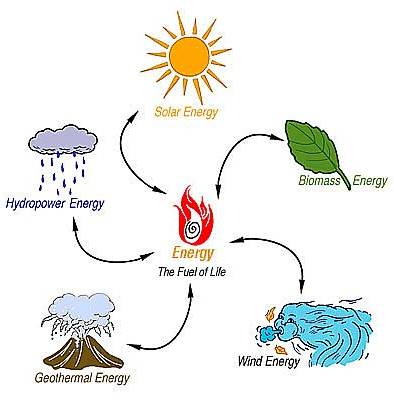









.jpg)



